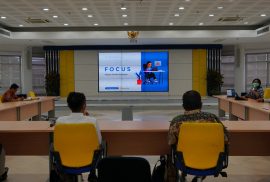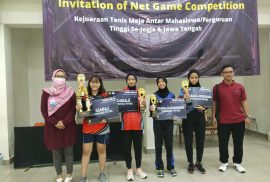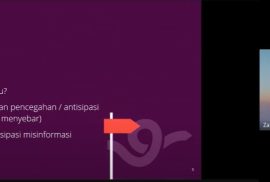Yogyakarta, April 26th 2022─Gadjah Mada University’s Faculty of Social and Political Science (Fisipol) held a “Discussion and Fast Breaking Together” for six days starting from 18 April to 26 April 2022. The event was held in Fisipol UGM Mandiri Auditorium Room and invited several lecturers and the deanship in the department with different schedules every day. Before entering the main event which is to break the fast together, a new learning platform named FOCUS is discussed.
Fisipol Online Courses (FOCUS) is an online learning media that was formed with the objective of providing class access for students with an output in the form of scoring students’ performance. Students can directly choose from the options of courses and follow a series of materials in their entirety. In the Spring Semester of 2022, several courses and other activities organized by departments and units at Fisipol UGM have been tested on the FOCUS platform.









